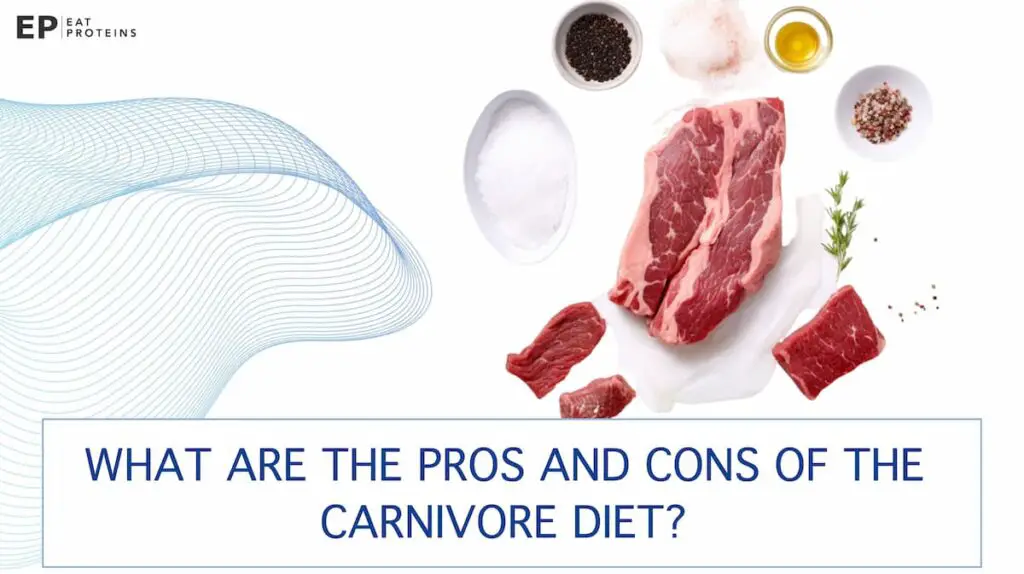The carnivore diet is an eating pattern that eliminates most or all plant-based foods, focusing solely on animal-derived products. Unlike conventional dietary guidelines that advocate for a balanced intake of both plant and animal foods, this diet has gained popularity through social media groups and claims various health benefits.
However, the diet is often criticized for its high saturated fat content and potential for nutritional deficiencies, including a lack of essential nutrients like fiber and phytonutrients. While some historical and clinical case studies suggest that a strictly animal-based diet can be sustainable and even beneficial, modern research on this dietary approach is sparse.
What is the Carnivore Diet?
The carnivore diet, according to a 2020 study by Amber O’Hearn from the University of Toronto, is a specific form of ketogenic diet that focuses exclusively on animal-derived products, eliminating most or all plant-based foods. The goal of the Carnivore Diet is to obtain essential nutrients from animal sources and achieve optimal health.
This diet has gained traction through social media and celebrity endorsements from figures such as Joe Rogan and Jordan Peterson. It claims various health benefits but is often criticized for its potential nutritional shortcomings, such as high saturated fat content and a lack of essential nutrients like fiber and phytonutrients. Recent studies have pointed out that the metabolic effects and nutrient interactions in ketogenic diets, including the carnivore diet, can impact nutritional needs and sometimes result in nutrient-sparing effects.
While ketogenic diets are already nutritionally controversial, the carnivore diet takes it a step further by removing plant foods entirely, thereby raising questions about their adequacy in providing essential nutrients.
Who is the creator of the Carnivore Diet?
The creator of the carnivore diet is Shawn Baker, a former American orthopedic doctor. He developed this diet which emphasizes meat consumption and reducing carbohydrates. In his book ‘The Carnivore Diet’, Baker discusses the theories behind the benefits of meat consumption and suggests that high-carb diets may contribute to chronic diseases.
However, there is currently no significant research confirming the effects of the carnivore diet on conditions such as depression, anxiety, arthritis, obesity, and diabetes. Despite this, Baker’s insights and recommendations as the creator of the diet are still relevant and can be helpful for individuals interested in trying the carnivore diet.
How does the Carnivore Diet work?
The Carnivore Diet works by eliminating almost all plant-based foods and focusing solely on meat consumption. This diet restricts food choices to include only animal products like meat, eggs, and dairy. The principle behind this approach is that it promotes weight loss, improves energy levels, and provides essential nutrients found in animal-based foods.

According to a 2021 study by Belinda S Lennerz from Boston Children’s Hospital, the Carnivore diet was surveyed among 2,029 adult respondents (median age: 44 years, 67% male) who had been following the diet for a median duration of 14 months. The primary motivation for following the diet was health reasons for 93% of the participants. The study found that fewer than 10% consumed vegetables, fruits, or grains more than monthly, and 37% did not use vitamin supplements.
Very few people had side effects from the Carnivore Diet, with rates ranging from less than 1% to 5.5%. The main issues were stomach problems (3.1%-5.5%), muscle issues (0.3%-4.0%), and skin problems (0.1%-1.9%). On the positive side, 95% of people felt healthier overall. For those with diabetes, the diet helped lower body weight by 4.3 units, reduced blood sugar levels by 0.4%, and decreased the need for diabetes medication by 84% to 100%.
What are the pros and cons of the Carnivore Diet?
The pros and cons of following the Carnivore Diet are as follows:

Pros
- Simplified Meal Planning: One potential benefit of the carnivore diet is the simplicity of meal planning. With a focus on animal-based foods, followers of the diet may find it easier to plan meals and grocery shopping.
- Personalized Approach: The carnivore diet allows for a personalized approach to nutrition. Some individuals may find that they thrive on a predominantly animal-based diet, while others may not experience the same benefits. It is essential to listen to your body and work with a healthcare professional or registered dietitian to ensure that your dietary needs are met and that you are consuming a well-rounded diet.
Cons
- Nutrient deficiencies: The carnivore diet eliminates plant-based foods, which can lead to deficiencies in certain vitamins, minerals, and fiber that are abundant in fruits, vegetables, and grains.
- Potential health risks: Long-term adherence to the carnivore diet may increase the risk of certain health conditions, such as heart disease and certain types of cancer, due to the absence of essential nutrients found in plant-based foods.
- Limited food choices: The restrictive nature of the carnivore diet may make it challenging to obtain a diverse range of nutrients and may lead to food boredom.
What are the benefits of the Carnivore Diet?
This list outlines 5 health benefits of the Carnivore Diet.
- Potential Brain Function Improvement: Some advocates of the carnivore diet claim that it can enhance brain function. However, scientific research in this area is limited, and more studies are needed to establish a clear link between the carnivore diet and improved brain health.
- Reduced Inflammation: Another potential benefit of the carnivore diet is a reduction in inflammation. Inflammation is associated with various chronic diseases, and proponents of the diet argue that eliminating plant-based foods can help reduce inflammation levels in the body.
- Improved Fat Oxidation: The carnivore diet is often associated with weight loss due to its low carbohydrate and high protein content. According to a 2020 study by Jaecheol Moon from Jeju National University Hospital, high-protein diets can help suppress appetite and promote weight loss.
- Potential Blood Sugar Regulation: By eliminating carbohydrates from the diet, the carnivore diet may help regulate blood sugar levels. Some proponents claim that the diet can be beneficial for individuals with insulin resistance or diabetes.
- Higher satiety: The high protein content of the Carnivore Diet can also promote feelings of satiety and prevent overeating.
What are the side effects of the Carnivore Diet?
The side effects of the Carnivore Diet can vary from person to person, but they are generally low in prevalence. Here are some potential side effects that some people may experience when following the Carnivore Diet:
- Diarrhea: In rare cases, people may experience new or worsened diarrhea when following the Carnivore Diet. However, the exact prevalence of this side effect is not well-established.
- Constipation: Some individuals may experience constipation as a result of the low fiber intake on the Carnivore Diet. However, the prevalence of constipation on this diet is also not well-documented.
- Weight gain: While weight loss is a common goal of the Carnivore Diet, a small percentage of individuals may actually experience weight gain. Unfortunately, there is limited data available to determine the exact prevalence of weight gain on this diet.
Can you follow a Carnivore Diet if you have diabetes?
Yes, individuals with diabetes can follow a carnivore diet. The carnivore diet primarily consists of animal products and eliminates plant-based foods, which can initially lead to improvements in blood sugar control due to the absence of carbohydrates. However, this diet may pose health risks when done in the long term.
How to do the Carnivore Diet?
The Carnivore Diet involves gradually eliminating all plant-based foods from your meals and focusing on consuming animal products such as meat, fish, eggs, and dairy. Here are three key steps to follow:

- Start by reducing your intake of plant-based foods and gradually increase your consumption of animal products.
- Aim to eliminate all plant-based foods from your diet over a period of time.
- Since you’ll be eliminating plant-based foods, it’s important to choose high-quality animal products.
- Opt for grass-fed beef, pasture-raised poultry, wild-caught fish, and organic eggs to ensure you’re getting the necessary nutrients. These animal products are rich in protein, vitamins, and minerals.
- Increasing your meat consumption can lead to increased water loss, so it’s important to drink plenty of water to stay hydrated.
- Monitor your electrolyte levels and consider adding electrolyte-rich foods or supplements to maintain proper balance. Electrolytes like sodium, potassium, and magnesium are essential for bodily functions.
What foods are allowed on the Carnivore Diet?
The Carnivore Diet allows for the consumption of a variety of animal-based foods. This high-fat, low-carb diet primarily consists of meats such as beef, pork, lamb, and poultry. Fish and seafood are also allowed on this diet. In addition to meats, eggs and dairy products like cheese and butter can be included in your meal plan.

- Meats: Includes beef, pork, lamb, and poultry
- Fish and Seafood: Salmon, shrimp, tuna, and mackerel
- Eggs: Boiled eggs, scrambled eggs, poached eggs, and omelets
- Dairy: Cheddar cheese, Greek yogurt, heavy cream, and unsalted butter
What foods are restricted from the Carnivore Diet?
The Carnivore Diet restricts the consumption of all plant-based foods. This means that you cannot consume any fruits, vegetables, grains, legumes, or dairy products on this diet.
- Vegetables to Avoid: Broccoli, spinach, carrots, and cauliflower
- Fruits to Avoid: Apples, bananas, oranges, and berries (e.g., strawberries, blueberries)
- Grains to Avoid: Rice, wheat (bread, pasta), oats (oatmeal), and corn
- Legumes to Avoid: Lentils, chickpeas
- Nuts and Seeds to Avoid: Almonds, sunflower seeds
What is the Carnivore Diet 7-day meal plan?
The Carnivore Diet 7-day meal plan consists of various animal-based foods such as meat, fish, and poultry. Plant-based sources are excluded from this diet.

Here’s a 7-day meal plan for the Carnivore Diet.
| Day | Breakfast | Lunch | Dinner | Snacks |
|---|---|---|---|---|
| Day 1 | Ribeye Steak | Chicken Thighs | Ground Beef | Cheese |
| Day 2 | Scrambled Eggs | Tuna | Grilled Chicken | Greek Yogurt |
| Day 3 | Pork Chops | Lamb Chops | Beef Liver | Cheddar Cheese |
| Day 4 | Boiled Eggs | Pork Belly | Lamb Shank | Heavy Cream |
| Day 5 | Salmon | Shrimp | Sardines | Unsalted Butter |
| Day 6 | Bacon | Beef Brisket | Pork Ribs | Cheese |
| Day 7 | Chicken Breast | Mackerel | Trout | Greek Yogurt |
What are the best Carnivore Diet recipes?
The best Carnivore Diet recipes are subjective and can vary based on personal preference. However, here are three delicious recipes that are popular among Carnivore Diet followers:
- Ribeye Steak with Butter: Sear a juicy ribeye steak in a hot skillet until it reaches your desired level of doneness. Top it off with a pat of butter for added richness and flavor.
- Bacon-Wrapped Chicken Thighs: Wrap succulent chicken thighs with crispy bacon strips and bake them in the oven until the bacon is crispy and the chicken is cooked through. This combination of textures and flavors is sure to satisfy your taste buds.
- Grilled Salmon with Lemon and Dill: Season a fresh salmon fillet with lemon juice, dill, and salt. Grill it to perfection until the salmon is flaky and cooked through. This recipe provides a healthy and delicious seafood option for those following the Carnivore Diet.
What breakfast recipes are available on the Carnivore Diet?
Some popular breakfast recipes on the Carnivore Diet include eggs and bacon. Eggs can be prepared in various ways such as scrambled, fried, or boiled, providing a good source of protein. Bacon, with its rich flavor and crispy texture, adds a savory element to the meal. Other meat options like sausage or steak can also be incorporated for added variety.
What are the scientific facts about the Carnivore Diet?
Here are 5 scientific facts about the Carnivore Diet.
- The carnivore diet is a high-protein, low-carbohydrate diet that emphasizes the consumption of animal-based foods exclusively.
- Scientific studies have shown that the carnivore diet can lead to significant weight loss. In one study, participants following the diet lost an average of 11.7 pounds (5.3 kg) over a 12-week period.
- Research has indicated that the carnivore diet may improve metabolic health markers. Studies have shown reductions in blood sugar levels and improvements in cholesterol levels among individuals following this diet.
- The carnivore diet has been found to have anti-inflammatory effects. This can be beneficial for individuals with autoimmune conditions, as inflammation plays a key role in these conditions.
- It is important to note that the long-term effects and potential risks of the carnivore diet are still being studied. While short-term studies have shown positive effects, more research is needed to understand the potential risks and benefits of following this diet over an extended period of time.
What are the criticisms surrounding the carnivore diet?
The carnivore diet has faced several criticisms. Dietitians and physicians have dismissed it as an extreme fad diet lacking clinical evidence for any health benefits. One major criticism is that the diet raises levels of LDL cholesterol, increasing the risk of cardiovascular disease. Studies have shown that the carnivore diet can lead to a significant increase in LDL cholesterol levels by an average of 10-15%.
Another concern is the deficiency of essential micronutrients and dietary fiber in the carnivore diet. Since it primarily consists of animal products, it may lead to deficiencies in important vitamins and minerals such as vitamin C, vitamin E, magnesium, and potassium. Furthermore, the lack of dietary fiber can result in constipation and digestive issues.
In addition to the health concerns, the carnivore diet has also received criticism for its environmental impact. Large-scale livestock farming associated with meat production contributes to greenhouse gas emissions and climate change. It’s estimated that the production of one kilogram of beef can generate around 27 kilograms of CO2 equivalents.
Considering these criticisms, it is important to consult with a healthcare professional before starting the carnivore diet to ensure that any potential risks and deficiencies are properly addressed.
Are there any clinical trials related to the carnivore diet?
Yes, there have been several clinical trials conducted to examine the effects of the carnivore diet on various health outcomes. These trials have looked at changes in biomarkers such as cholesterol levels, blood pressure, and body weight.
Can coffee be included in the Carnivore Diet?
No, coffee cannot be included in the carnivore diet. The carnivore diet strictly focuses on consuming animal-based foods, and coffee is not derived from animal sources. Therefore, it does not align with the principles of the carnivore diet.
Is the Carnivore Diet considered a safe diet by health experts?
No, the Carnivore Diet is not universally considered a safe diet plan by health experts. Opinions are divided: some experts believe it can be safe if well-planned, while others express concerns about potential health risks such as nutrient deficiencies and elevated levels of saturated fats.
What are the reported before-and-after results of the carnivore diet?
The reported before-and-after results of the carnivore diet include significant weight loss, increased muscle mass, improved energy levels, clearer skin, improved digestion, enhanced focus, and improved mood. Followers of the diet, including some celebrities, have also reported long-term benefits in managing or preventing chronic conditions like type 2 diabetes and overall well-being.
Which celebrities are known to follow the carnivore diet?
Celebrities known to follow the carnivore diet include Joe Rogan, Jordan Peterson, his wife Tammy Peterson, Mikhaila Peterson, and Shawn Baker. James Blunt was also in the news for developing scurvy after two months on an all-meat diet.
How does Joe Rogan incorporate the Carnivore Diet into his lifestyle?
Joe Rogan follows a two-meal-a-day carnivore diet. He has eggs and bacon for breakfast, and for dinner, he consumes grass-fed elk, bison, and steak. He emphasizes the importance of consuming ample healthy fats when following a low-carb diet to avoid potential issues like protein poisoning. Rogan’s decision to go carnivore was driven by his desire to improve his overall health, enhance his energy and mental clarity, and explore how the diet could benefit his autoimmune condition called vitiligo.
How does Jordan Peterson follow the Modified Carnivore Diet?
Jordan Peterson’s approach to the Carnivore Diet is known as the Lion Diet or Carnivore Elimination Diet. He followed the strict lion diet elimination protocol for two months and then transitioned to a modified Carnivore Diet consisting of meat and greens for a year. Peterson believes in the importance of fat on this diet and selects the fattiest cuts of steak and other fatty keto meats.
What are the differences between the Lion Diet and the Carnivore Diet?
The Lion Diet and the Carnivore Diet are similar in that they both emphasize meat consumption, but the Lion Diet restricts it to ruminant animals only, while the Carnivore Diet allows all types of meat. The Lion Diet is stricter and more limited in terms of food options compared to the Carnivore Diet.
How does the Carnivore Diet compare to the Keto Diet?
The carnivore diet and the keto diet are both low in carbohydrates and high in fat. However, there are key differences between the two. The carnivore diet focuses exclusively on animal-based foods, while the keto diet allows for a wider range of low-carb, high-fat options, including plant-based foods. The carnivore diet eliminates all plant-based foods, while the ketogenic diet includes a balance of protein sources such as meat, poultry, fish, and plant-based proteins.
How does the Carnivore Diet affect muscle gain?
The Carnivore Diet can positively affect muscle gain due to its high protein content, which provides essential amino acids necessary for muscle growth and repair. Eliminating plant-based foods may also improve nutrient absorption, allowing the body to more efficiently utilize proteins and other nutrients essential for muscle gain.
Are there any PDF resources for a carnivore diet meal plan?
Yes, there are PDF resources available for a carnivore diet meal plan. These resources provide detailed meal plans specifically designed for a carnivore diet. They include information on food choices, portion sizes, and meal timing, as well as tips and tricks for success.

